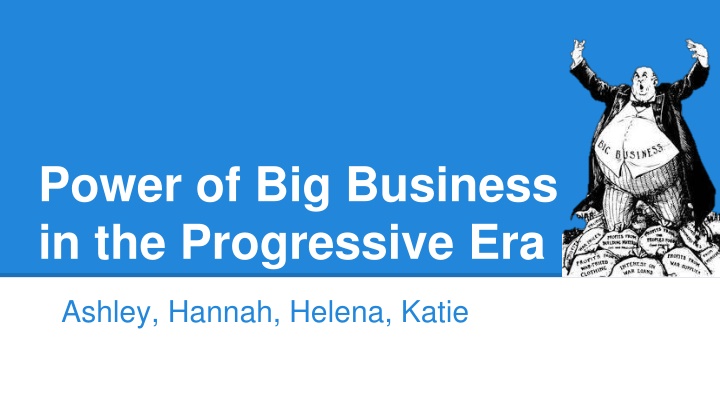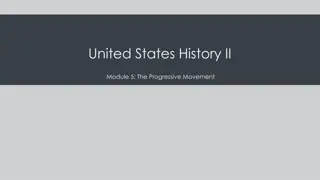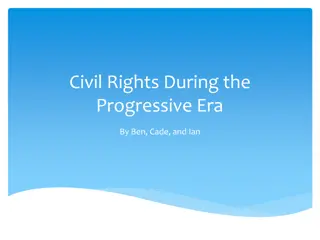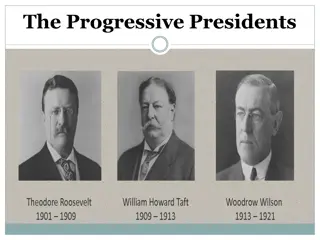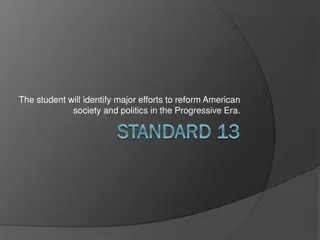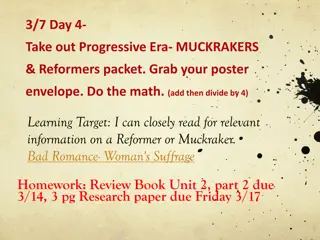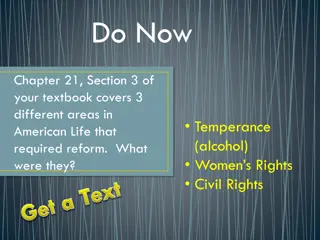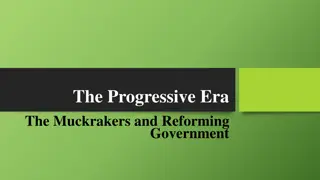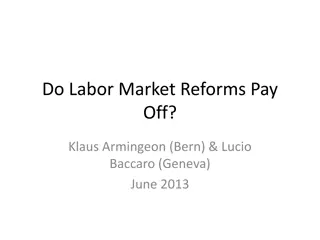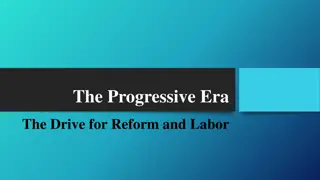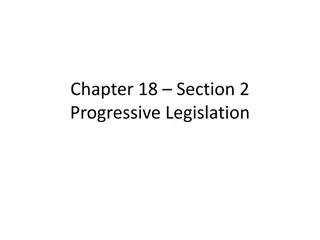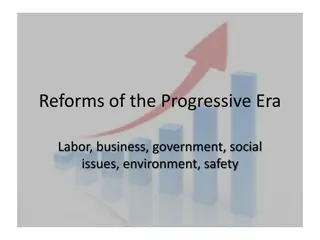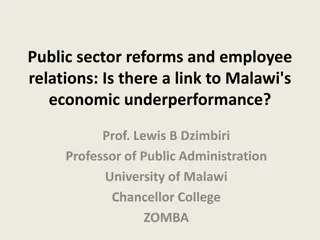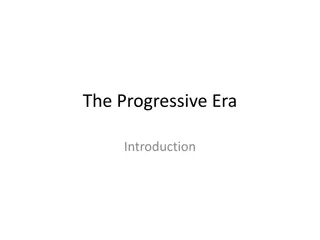Challenges and Reforms in the Progressive Era: Power Struggles of Big Business
The Progressive Era was marked by the dominance of large business monopolies, leading to suppressed competition, exploitation of laborers, and economic control. Reformers aimed to regulate corporations, ensure fair competition, and expose corruption through muckraking journalism. Notable figures such as Lincoln Steffens and Ida Tarbell challenged powerful tycoons like Andrew Carnegie and John D. Rockefeller. Presidents took actions like enforcing antitrust laws and creating the Federal Reserve Act to combat monopolistic practices.
Download Presentation

Please find below an Image/Link to download the presentation.
The content on the website is provided AS IS for your information and personal use only. It may not be sold, licensed, or shared on other websites without obtaining consent from the author.If you encounter any issues during the download, it is possible that the publisher has removed the file from their server.
You are allowed to download the files provided on this website for personal or commercial use, subject to the condition that they are used lawfully. All files are the property of their respective owners.
The content on the website is provided AS IS for your information and personal use only. It may not be sold, licensed, or shared on other websites without obtaining consent from the author.
E N D
Presentation Transcript
Power of Big Business in the Progressive Era Ashley, Hannah, Helena, Katie
Problems Large business monopolies suppressed the potential for competition Companies controlled entire industries and could exploit laborers and consumers The federal government failed to combat the issue
Goals Regulate large corporations to prevent monopolies Ensure competition and free enterprise Establish and enforce antitrust laws
Exposure and Muckraking Muckrakers worked to expose corruption Hoped to bring about reform Exposed the political and economic corruption and social hardships caused by the power of big businesses through detailed and accurate journalism o Corrupted management o Government influence o Monopolies
Notable Names GOOD GUYS Lincoln Steffens o Wrote an article in McClure s magazine called Tweed Days in St. Louis o Exposed how city officials worked with big business to maintain power while corrupting the public treasury Ida Tarbell o Wrote a series in McClure s Magazine called History of the Standard Oil Company o Outlines and documented Rockefeller s cutthroat business tactics Presidents o Theodore Roosevelt o Woodrow Wilson BAD GUYS Andrew Carnegie o Steel empire o Ruthless business tactics Vertical Integration John D. Rockefeller o Founded Standard Oil Company o Monopoly on the oil industry o Ruthless business tactics Horizontal Integration
Strategies/Tactics Presidents enforced laws to watch over large businesses and control monopolies Making people aware of what is happening in these big businesses Sherman Antitrust Act- Prevented large firms from controlling a single industry Rule of Reason -Used to interpret Sherman Antitrust Act Federal Reserve Act-Created central banking system of the United States for better control over money from large businesses
Groups Involved Republicans o Teddy Roosevelt became president and enforced laws Formed Progressive Party o William Taft passed the 16th amendment Democrats o Woodrow Wilson taxed people with large incomes Labor Unions/Laborers o Better working conditions and wages
Obstacles Faced Unfairness in markets Entrepreneurs had more say in government Difficulty passing legislation Discrimination & poverty were obstacles against individual freedom & liberty
Successes/Failures Congress enacted law regulating railroads (Interstate Commerce Act 1887) Election of sympathetic presidents (Roosevelt & Wilson) who enforced these laws Antitrust Law prohibits monopoly & unfair business practice Attempted to prevent large firms from controlling a single industry (Sherman Antitrust Act 1890)
